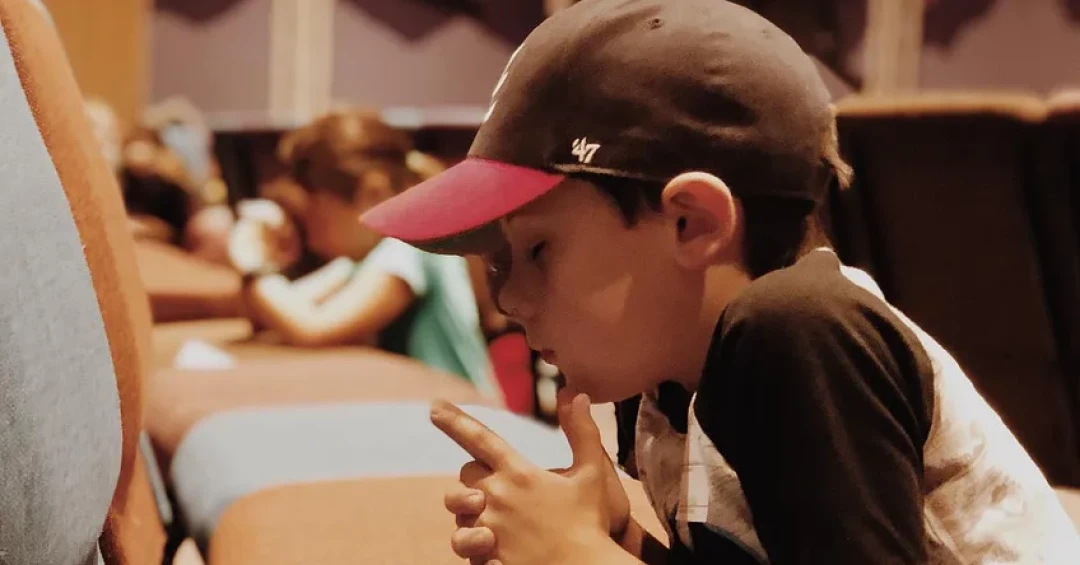
by Felix Arellano on September 15, 2025
When tragedy fills the headlines and our feeds, it’s not just adults who feel the weight; kids sense it too. Even if they don’t have the words, they absorb the tension around them. Sometimes it shows up in their bodies in the form of headaches, stomach aches, and restless sleep long before it comes out in their words.
Research shows that children are most resilient when trusted adults both acknowledge hard realities and provide security and hope. This guide draws from Helping Preteens Process Tragic Events, a webinar hosted by Pastor Sean Sweet with psychologist Jaime Santos and adolescent mental-health specialist Paula Mazza. What follows are age-specific strategies designed to help you walk with your child through heavy moments.
Here’s what I want you to remember most: you don’t need to have all the answers. What matters most is your presence; listening, acknowledging, and creating a safe space for your child to share what they feel.
Why Age-Appropriate Conversations Matter
Children's brains develop gradually, affecting how they understand abstract concepts like death, violence, and injustice. Without proper guidance, they may fill in gaps with frightening or inaccurate information. Developmental research shows that children who receive age-appropriate explanations and emotional support develop greater resilience and coping skills.
Early Childhood (Ages 3-6)
How They Process Information:
- Think concretely, not abstractly
- May believe bad things happen because of something they did
- Focus on immediate safety and routine
- Learn through play and repetition
- May not understand the permanence of death
Conversation Strategies:
- Keep it simple: Use basic vocabulary and short sentences
- Focus on safety: "You are safe. Mommy and Daddy are keeping you safe."
- Use concrete examples: Instead of "bad people," say "someone who makes unsafe choices"
- Limit details: Share only what they need to know
- Reassure routine: "We will still go to school, have dinner together, and read stories"
Sample Conversation Starters:
- "Sometimes sad things happen in the world. Have you heard grown-ups talking about something that made them sad?"
- "I noticed you seem worried. Can you tell me what you're thinking about?"
- "When we hear about sad things, it's normal to feel scared. I'm here to keep you safe."
Activities and Coping Strategies:
- Play therapy: Use dolls or toys to act out scenarios and feelings
- Art expression: Draw pictures of feelings or safe places
- Physical comfort: Extra hugs, snuggling, comfort items
- Routine maintenance: Keep bedtime, meals, and activities consistent
- Simple prayers: "God, please help the people who are sad and keep us safe"
What to Avoid:
- Graphic details or images
- Adult news programs in their presence
- Dismissing their fears as "silly"
- Over-explaining complex political or social issues
Middle Childhood (Ages 7-9)
How They Process Information:
- Beginning to understand cause and effect
- Can grasp that bad things happen to good people
- May worry about similar events happening to them
- Want concrete facts but may imagine worse scenarios
- Developing sense of fairness and justice
Conversation Strategies:
- Provide factual information: Answer questions honestly but age-appropriately
- Address misconceptions: Correct misinformation they may have heard
- Discuss helpers: Focus on people working to help and protect others
- Validate emotions: "It makes sense that you feel scared/sad/angry about this"
- Encourage questions: Create ongoing dialogue rather than one conversation
Sample Conversation Starters:
- "I know you've probably heard about [event] at school. What have you heard, and what questions do you have?"
- "How does your body feel when you hear about these things? Let's talk about what might help."
- "What have you noticed your friends saying about what's happening?"
- "When you feel worried about something like this, what usually helps you feel better?"
Activities and Coping Strategies:
- Journaling: Write or draw about feelings and thoughts
- Helper spotting: Look for stories of people helping in crisis situations
- Action projects: Collect items for relief efforts or write cards to helpers
- Body awareness: Teach breathing exercises and muscle relaxation
- Fact vs. feeling: Help distinguish between confirmed facts and worried thoughts
Teaching Emotional Regulation:
- Name it to tame it: Help identify specific emotions (worried vs. scared vs. angry)
- Breathing exercises: "Balloon breaths" (inflate belly) or "flower and candle" (smell flower, blow out candle)
- Progressive muscle relaxation: Tense and relax different muscle groups
- Mindfulness activities: Focus on five senses in the present moment
What to Avoid:
- Overwhelming them with too many details at once
- Adult-level discussions about politics or complex social issues
- Promising that bad things will never happen
- Ignoring their questions or telling them not to worry
Preteens (Ages 9-11)
How They Process Information:
- Can understand abstract concepts like injustice and mortality
- May feel intense emotions and question fairness
- Beginning to develop personal values and beliefs
- Influenced heavily by peer perspectives and social media
- May feel helpless or overwhelmed by world problems
Conversation Strategies:
- Engage in deeper discussions: Explore values, justice, and faith together
- Ask for their perspective: "What do you think about what's happening?"
- Address social media: Discuss what they're seeing online and fact-checking
- Explore meaning: "How do you think we're supposed to respond to something like this?"
- Model vulnerability: Share your own appropriate emotions and struggles
Sample Conversation Starters:
- "I've been thinking a lot about [event]. I imagine you have too. What's been going through your mind?"
- "How are your friends processing this? What conversations are happening at school?"
- "When you see things like this, what questions does it raise for you about life or faith?"
- "What do you think our responsibility is when we hear about suffering in the world?"
Activities and Coping Strategies:
- Service projects: Find ways to contribute to relief efforts or help locally
- Journaling prompts: "Dear God" letters, gratitude lists, feeling exploration
- Media literacy: Learn to evaluate news sources and avoid overwhelming content
- Discussion groups: Join or create safe spaces to process events with peers
- Creative expression: Music, art, poetry, or writing to process emotions
Building Resilience:
- Develop personal values: Help them identify what they believe is important
- Encourage critical thinking: "What questions should we ask about this situation?"
- Foster empathy: Discuss different perspectives and experiences
- Practice self-advocacy: Teach them to ask for help when overwhelmed
- Build community: Strengthen connections with friends, family, and faith community
What to Avoid:
- Assuming that they don’t know what’s happening because you have successfully sheltered them.
- Dismissing their opinions as immature
- Treating them like adults who can handle all adult emotions and concerns
- Allowing unlimited access to news and social media without guidance
- Expecting them to be your emotional support
Universal Strategies for All Ages
1. Start the Conversation Proactively
- Don't wait for kids to bring it up: Begin gently with open-ended questions
- Create regular check-ins: Make it routine to discuss current events age-appropriately
- Conversation Starters:
- "There's been a lot happening in the news. Have you heard anything or noticed people talking about it?"
- "I noticed you seemed quiet after we saw that news report. Want to talk about it?"
- "Sometimes when big, sad things happen in the world, kids have questions or feelings. Do you?"
2. Listen First, Correct Gently
- Give them space to share: What they've seen, heard, or felt without interruption
- Resist the urge to explain immediately: Understanding their perspective first helps you respond appropriately
- Correct misinformation carefully: "I can see how you thought that. Here's what we actually know..."
- Validate their processing: Even if their understanding isn't perfect, acknowledge their effort to make sense of things
3. Name and Validate Feelings
- Help identify emotions: Scared, sad, confused, angry, helpless, worried
- Model emotional honesty: "I feel sad when I hear about this. It makes my heart heavy."
- Normalize their responses: "Many kids (and adults) feel this way when they hear about things like this"
- Avoid minimizing: Instead of "don't worry," try "I understand why this would worry you"
4. Reassure Their Safety While Being Truthful
- Remind them of their support network: Parents, teachers, police, pastors, community helpers
- Be specific about safety measures: "We live far from where this happened," or "Our school practices safety drills."
- Acknowledge their local safety: "We are doing everything we can to keep you safe, and there are many helpers who work every day to protect kids and families."
- Don't make promises you can't keep: Instead of "this will never happen here," say "this is very unlikely to happen here, and here's why..."
5. Provide Healthy Outlets
- Physical activities: Running, dancing, sports, playground time
- Creative expression: Drawing, music, crafts, building
- Spiritual practices: Prayer, worship, reading comforting Bible verses
- Social connection: Time with friends, family activities, community involvement
- Service opportunities: Age-appropriate ways to help others
6. Point Them to Hope
- Faith foundation: Pray together, reminding them God is near and hears us
- Scripture comfort: Psalm 34:18 - "The Lord is close to the brokenhearted"
- Focus on helpers: Mr. Rogers' advice to "look for the helpers" in any tragedy
- End with gratitude: Name specific good things in their day to anchor them in hope
- Emphasize community: Remind them of all the people who love and care for them
Bible Verses for Different Situations
Need a Bible passage to help guide your conversation, prompt a prayer, or center your thoughts around? Here are a few to get you started:
For Fear and Anxiety:
Isaiah 41:10 - "Don't be afraid, for I am with you"
Philippians 4:6-7 - "Don't worry about anything; instead, pray about everything"
Psalm 23:4 - "Even when I walk through the darkest valley, I will not be afraid, for you are close beside me"
For Sadness and Grief:
Psalm 34:18 - "The Lord is close to the brokenhearted"
Matthew 5:4 - "God blesses those who mourn, for they will be comforted"
Revelation 21:4 - "He will wipe every tear from their eyes"
For Questions About Suffering:
Romans 8:28 - "God causes everything to work together for the good of those who love God"
Psalm 46:1 - "God is our refuge and strength, always ready to help in times of trouble"
Jeremiah 29:11 - "I know the plans I have for you, plans to prosper you and not to harm you"
Prayer Ideas for Different Ages
Young Children:
- Simple prayers asking God to help people who are hurt
- Thanking God for keeping them safe
- Asking God to help the helpers (doctors, police, firefighters)
Older Children:
- Prayers for understanding and wisdom
- Intercession for those affected by tragedy
- Prayers for peace and healing in the world
- Gratitude for God's presence in difficult times
Remember: You Don't Need All the Answers
What your children need most is your presence, your honesty, and your reassurance. You don't have to have all the answers to life's difficult questions. Sometimes the most powerful thing you can say is:
"I don't know why this happened, but I know God loves us and is with us."
"That's a really good question. Let's think about it together."
"I wish I could make all the sad things go away, but I can't. What I can do is love you and walk through this with you."
"Even when we don't understand, we can trust that God sees everything and cares about everyone."
Conversations like these build trust that will carry through every season of your child's life. The goal isn't to shield them from all knowledge of suffering, but to help them develop the emotional and spiritual tools they need to face an imperfect world with hope, compassion, and resilience.
Your love, combined with age-appropriate honesty and spiritual foundation, gives them exactly what they need to grow into emotionally healthy, faith-filled adults who can face whatever comes their way.




